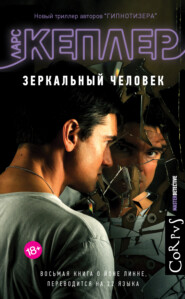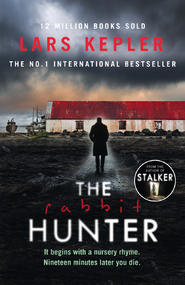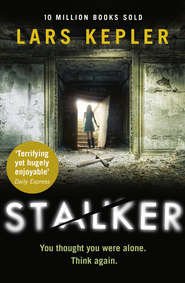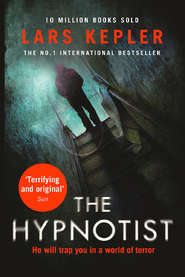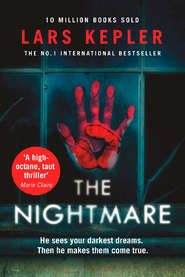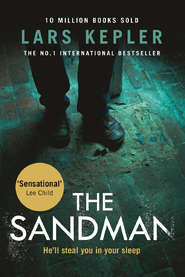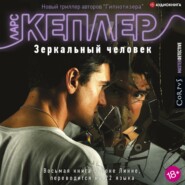По всем вопросам обращайтесь на: info@litportal.ru
(©) 2003-2024.
✖
Cop Killer
Автор
Год написания книги
2019
Настройки чтения
Размер шрифта
Высота строк
Поля
‘I think I'd prefer to stay here.’
‘Okay.’
He shuffled among the papers on his desk.
‘Here's the report. Want to look?’
Martin Beck thought for a moment.
‘Can you give it to me verbally?’ he said.
‘Love to.’
Martin Beck felt comfortable. He liked Allwright. Everything was going to work out fine.
‘How many people do you have here?’
‘Five. One secretary. Nice girl. Three constables, when there aren't any vacancies. One patrol car. By the way, have you had any breakfast?’
‘No.’
‘Want some?’
‘Yes.’
He was actually starting to feel a little hungry.
‘Good,’ said Allwright. ‘Now how shall we do this? Let's go up to my place. Britta will come and open up at eight-thirty. If anything special happens, she'll call up and let us know. I've got coffee and tea and bread and butter and cheese and marmalade and eggs. I don't know what all. You want coffee?’
‘I'd rather have tea.’
‘I drink tea myself. So I'll take the report with me, and we'll go on upstairs. Okay?’
The flat upstairs was pleasant and full of character, neatly arranged, but not for family life. It was immediately apparent that whoever lived there was a bachelor, with a bachelor's habits, and had been for some time, perhaps his whole life. There were two hunting rifles and an old police sabre hanging on the wall. Allwright's service pistol, a Walther 7.65, lay disassembled on a piece of oilcloth on what was presumably the dining-room table.
Guns were clearly one of his hobbies.
‘I like to shoot,’ he said.
He laughed.
‘But not at people,’ he added. ‘I never have shot a person. In fact, I've never even aimed at anyone. For that matter, I never carry it on me. I've got a revolver, too, a competition model. But that's locked in the vault downstairs.’
‘Are you good?’
‘Oh, you know. Win once in a while. That is to say, rarely. I've got the badge, of course.’
That could mean only one thing. The gold badge. Which only elite shots ever won.
For his own part, Martin Beck was a lousy shot. There had never been any question of a gold badge. Or any other kind. On the other hand, he had aimed at people, and shot at them, too. But never killed anyone. There was always a silver lining.
‘I could clear off the table,’ said Allwright without any particular enthusiasm. ‘I mostly just eat in the kitchen.’
‘So do I,’ said Martin Beck.
‘Are you a bachelor too?’
‘More or less.’
‘I see.’
Allwright didn't seem interested.
Martin Beck was divorced and had two grown children – a daughter who was twenty-two and a son of eighteen.
‘More or less’ meant that for the past year he'd had a woman living with him pretty regularly. Her name was Rhea Nielsen, and he was probably in love with her. Having her around had changed his home – for the better, it seemed to him.
But that was no concern of Allwright's, who seemed to be utterly indifferent to how the chief of the National Murder Squad had arranged his private life.
The kitchen was practical and efficient, with all the modern conveniences. Allwright put a pot of water on the hob, took four eggs from the refrigerator, and made tea in the coffee pot – that is, he heated water in it and put the teabags in the cups. An effective method, though not one to satisfy the connoisseur.
With a feeling that he ought to be doing something useful, Martin Beck put two pieces of sliced bread in the electric toaster.
‘They make some really good bread around here,’ Allwright said. ‘But I usually just buy Co-op. I like the Co-op.’
Martin Beck did not like the Co-op, but he didn't say so.
‘It's so close,’ Allwright said. ‘Everything's close around here. I've got an idea that Anderslöv has the highest commercial concentration in Sweden. Or pretty near anyway.’
They ate. Washed the dishes. Went back to the living room.
Allwright took the folded report out of his back pocket.
‘Papers,’ he said. ‘I'm sick of paper. This has turned into a paper job – nothing but applications and licences and copies and crap. In the old days, being a policeman here was dangerous. Twice a year, at beet season. There'd be all sorts of people here. Some of them used to drink and fight like you wouldn't believe. And sometimes you'd have to go in and break it up. And that meant being quick with your fists, if you wanted to save your looks. It was tough, but it was fun too, in a way. Now it's different. Automated, mechanical.’
He paused.
‘But that isn't what I was going to talk about. For that matter, I don't need the report. The facts are pretty damned simple. The woman in question is named Sigbrit Mård. She's thirty-eight years old and works in a pastry shop in Trelleborg. Divorced, no children, lives alone in a little house in Domme. That's out on the road towards Malmö.’
Allwright looked at Martin Beck. His expression was grim, but still full of humour.
‘Towards Malmö,’ he repeated. ‘That is to say, west of here on Route 101.’
‘You don't have much faith in my sense of direction,’ said Martin Beck.
‘You wouldn't be the first person to get lost on the Skåne plains,’ Allwright said. ‘Speaking of which…’
‘Yes?’






